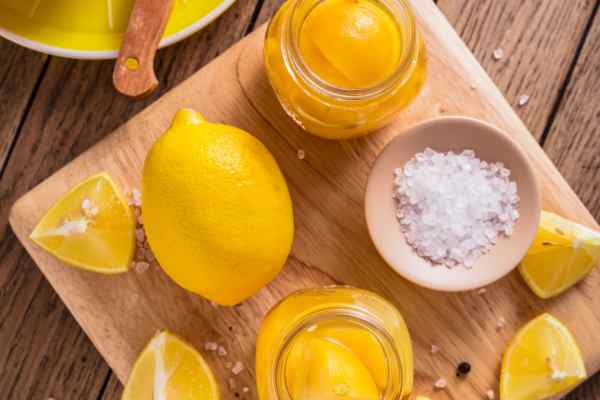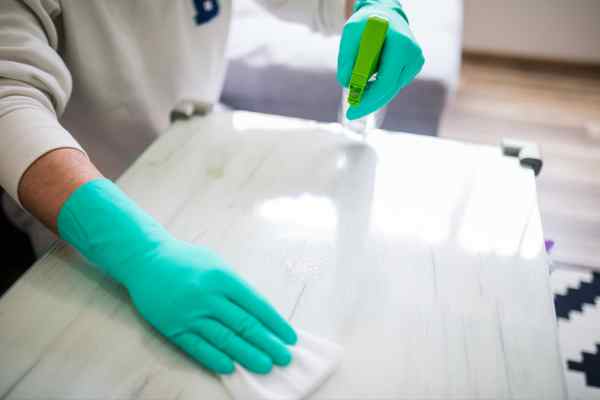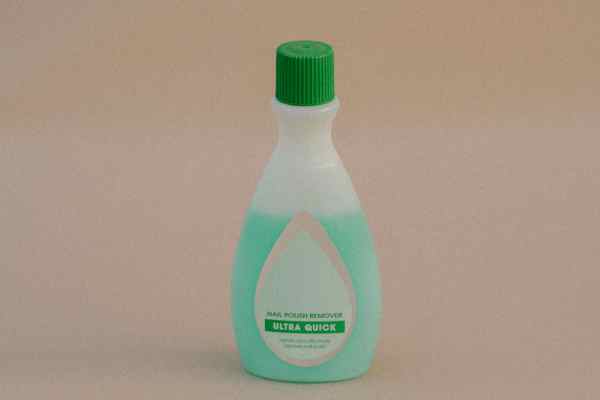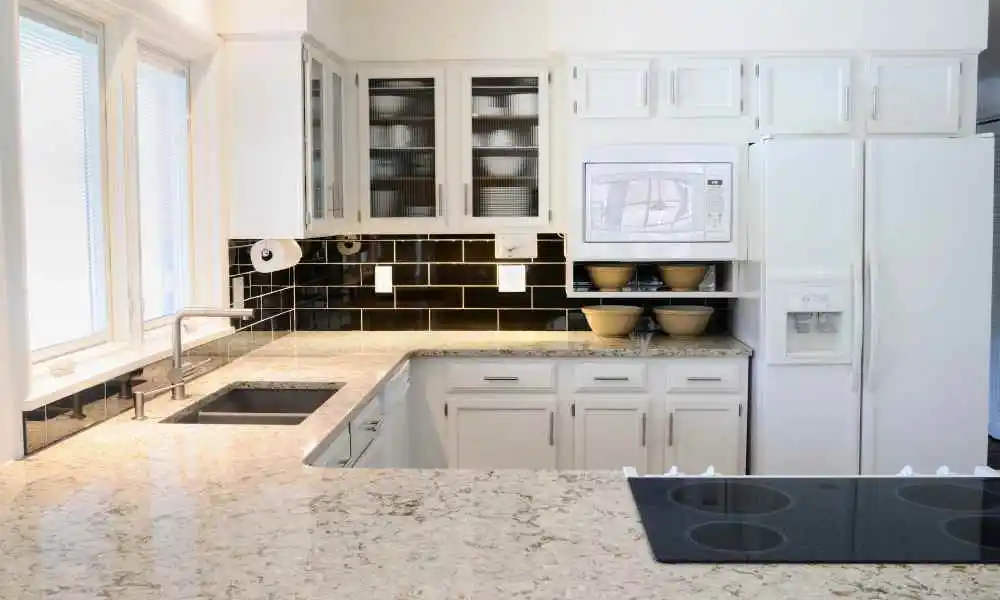Quartz countertops have become a staple in modern homes, revered for their durability and the elegant touch they add to any space. However, even the most resilient materials are not immune to the occasional blemish. One common issue that many homeowners face is the unsightly appearance of rust stains, which can mar the sleek surface of their quartz countertops. These stains are not just an aesthetic concern but can also be a sign of potential long-term damage if not addressed promptly and correctly. Understanding how to effectively remove rust from your quartz countertop is crucial in maintaining its beauty and functionality. This blog will guide you through various methods, ranging from readily available household items to specialized cleaning products, each designed to tackle those stubborn rust stains without compromising the integrity of your quartz surfaces.
How do you remove old stains from quartz countertops?
To remove old stains from quartz countertops, start by mixing a paste of baking soda and water and applying it to the stained area. Let it sit for a few minutes before gently scrubbing it with a soft-bristled brush. Rinse the area thoroughly with water and dry it with a clean cloth. For tougher stains, you can use a non-abrasive household cleaner or a specialized quartz countertop cleaner following the manufacturer’s instructions.
Another method to remove old stains from quartz countertops is using a mixture of equal parts water and 91% isopropyl alcohol. Apply the solution to the stained area and let it sit for a few minutes before wiping it away with a clean cloth. Repeat as necessary until the stain is removed. It’s important to avoid using harsh chemicals or abrasive cleaners on quartz countertops, as they can damage the surface. Always test any cleaning solution on a small, inconspicuous area first to ensure compatibility with your specific countertop.
How do you remove metal marks from quartz countertops?
To remove metal marks from quartz countertops, you can start by using a non-abrasive cleaning solution and a soft cloth to gently scrub the affected area. Avoid using harsh chemicals or abrasive materials, as they can damage the surface of the quartz. If the metal marks are stubborn, you can try using a mild abrasive cleaner specifically designed for quartz surfaces, following the manufacturer’s instructions carefully. Additionally, you may consider using a magic eraser or a paste made of baking soda and water to help lift the metal marks without causing damage to the countertop.
It’s important to always test any cleaning method on a small, inconspicuous area of the countertop first to ensure it doesn’t cause any discoloration or damage. If you’re unsure about how to proceed, consider consulting with a professional stone fabricator or contacting the manufacturer of your quartz countertops for specific cleaning recommendations. With proper care and maintenance, you can effectively remove metal marks from your quartz countertops while preserving their beauty and durability.
Benefits of How To Get Rust Off Quartz Countertop
Preservation of Appearance
Quartz is prized for its sleek and elegant appearance. Removing rust stains helps maintain this aesthetic, ensuring that the countertops remain as visually appealing as the day they were installed.
Enhanced Durability
Quartz countertops are known for their durability. By removing rust and taking proper care of the surface, you can prevent the degradation of the material, thereby extending its life and preserving its integrity.
Increased Hygiene
Rust and other stains can harbor bacteria and other pathogens. By removing these stains, you’re also removing potential breeding grounds for microbes, leading to a cleaner, more hygienic surface which is especially important in kitchen environments.
Improved Property Value
Well-maintained countertops are a key factor in home valuation. Keeping your quartz countertops free of rust and other blemishes can contribute to the overall value of your property, particularly in the eyes of potential buyers who may be scrutinizing the condition of your kitchen and bathrooms.
Cost-Effectiveness
Regular maintenance, including rust removal, can prevent the need for more extensive and expensive repairs or replacements in the future. By addressing rust spots early, you can avoid the costs associated with deeper damage that might require professional restoration or even the replacement of sections of the countertop.
Here Are Some Ideas How To Get Rust Off Quartz Countertop
Commercial Quartz Cleaner

When dealing with rust stains on quartz countertop, commercial quartz cleaners are a go-to solution. These cleaners are specifically formulated to tackle tough stains, including rust, without damaging the integrity of the quartz surface. What makes them particularly appealing is their ease of use. Typically, you apply the cleaner directly to the stain, let it sit for the prescribed amount of time, and then wipe it away with a soft cloth. This simplicity saves time and effort. Moreover, these cleaners often contain ingredients that not only remove stains but also leave behind a protective layer, helping to prevent future staining. It’s crucial, however, to choose a cleaner that’s design for quartz, as other types may be too harsh and cause more harm than good. Always read and follow the manufacturer’s instructions for the best results.
Lemon Juice and Salt

For a natural and eco-friendly solution, lemon juice and salt can be surprisingly effective against rust stains. The acidity of lemon juice works to break down the rust, while the abrasive nature of salt helps to scrub it away. To use this method, sprinkle a generous amount of salt over the stain, then squeeze fresh lemon juice over the salt. Let the mixture sit on the stain for about an hour, giving the natural acids time to penetrate and loosen the rust. Afterward, gently scrub the area with a soft cloth or sponge. Rinse with water and dry with a clean towel. This method is particularly appealing for those who prefer to avoid harsh chemicals and opt for natural cleaning solutions. Additionally, it’s cost-effective and utilizes ingredients that are commonly found in most households.
White Vinegar Solution

White vinegar is a versatile household item that can also be used to remove rust from quartz countertop. Its acidic nature makes it an effective cleaning agent. To create a cleaning solution, mix equal parts of white vinegar and water. Apply this mixture to the rust stain and let it sit for a few minutes. This allows the vinegar to penetrate and loosen the rust. After soaking, gently scrub the area with a soft cloth or sponge. Once the rust has been removed, rinse the area thoroughly with water and dry it with a clean towel. The benefit of using white vinegar is that it’s a natural, non-toxic cleaner that’s safe for most surfaces, including quartz. Additionally, it’s a cost-effective option that is readily available in most homes.
Baking Soda Paste

Baking soda is another excellent natural cleaner that can be used to remove rust from quartz countertops. To use baking soda, make a paste by mixing it with a small amount of water. Apply this paste directly to the rust stain and let it sit for several hours or even overnight for tough stains. The paste works by slowly breaking down the rust while being gentle on the quartz surface. After the paste has had time to work, gently scrub the area with a soft cloth or sponge, then rinse thoroughly with water and dry with a clean towel. One of the advantages of using baking soda is that it’s a mild abrasive, which means it can scrub away stains without scratching the surface of your countertop. Additionally, baking soda is a common household item, making it an accessible and affordable option for rust removal.
Rubbing Alcohol

Rubbing alcohol can be effective for removing rust stains from quartz countertops, especially when dealing with lighter stains. To use rubbing alcohol, apply a small amount to a clean cloth and gently rub it over the stained area. The alcohol works by dissolving the rust, making it easier to wipe away. After treating the stain, clean the area with a damp cloth to remove any residue, and then dry it with a towel. It’s important to use rubbing alcohol sparingly, as excessive amounts can damage the sealant on the quartz surface. This method is best for those who are looking for a quick and effective solution for minor rust stains. Rubbing alcohol is readily available and is often already present in many homes, making it a convenient option for last-minute cleaning needs.
Hydrogen Peroxide

Hydrogen peroxide is another effective solution for removing rust from quartz countertops, especially for light-colored quartz. Its bleaching properties make it particularly useful for tough stains. To use hydrogen peroxide, apply a small amount directly to the rust stain. Let it sit for a few minutes, allowing the solution to react with the rust. The chemical reaction will help to break down the rust, making it easier to wipe away. After the solution has had time to work, gently scrub the area with a soft cloth or sponge. Rinse the area thoroughly with water and dry it with a clean towel. While hydrogen peroxide is a powerful cleaning agent, it’s crucial to use it cautiously, as it can bleach the color of darker quartz. It’s also advisable to use it in a well-ventilated area.
Nail Polish Remover

Nail polish remover, particularly those containing acetone, can be used to treat rust stains on quartz countertops. Acetone is effective in breaking down and dissolving rust stains. To use this method, apply a small amount of nail polish remover to a clean cloth and gently dab the stained area. Let it sit for a few minutes, but be cautious not to leave it for too long as it can damage the sealant of the quartz. After the acetone has had time to work on the rust, gently scrub the area with a soft cloth. Rinse the countertop with water and dry it thoroughly. Nail polish remover is a good option for those who need a strong and quick solution for removing small, superficial rust stains. However, it should be used sparingly and with caution, as acetone is a potent chemical.
Cream of Tartar

Cream of tartar is a less known but effective natural cleaner for removing rust from quartz countertops. As a mild acid, it can help to loosen and lift rust stains. To use cream of tartar, mix it with a small amount of water to create a paste. Apply this paste to the rust stain and let it sit for a few minutes. The paste works by gently breaking down the rust without scratching the quartz surface. After letting it sit, scrub the area with a soft cloth or sponge, then rinse thoroughly with water and dry with a clean towel. Cream of tartar is an excellent option for those who prefer natural, non-toxic cleaning solutions. It is gentle on the surface, making it suitable for regular use and maintenance of quartz countertops.
The Final Thought
Remove rust from a quartz countertop requires patience, the right tools, and careful application of cleaning agents. By using gentle scrubbing pads and non-abrasive cleaners, you can effectively eliminate rust stains without damaging the surface of your countertop. Following the recommended maintenance guidelines for quartz countertops will help prevent future rust formation. Remember to always test any new cleaning products on a small inconspicuous area before applying them to the entire surface.
